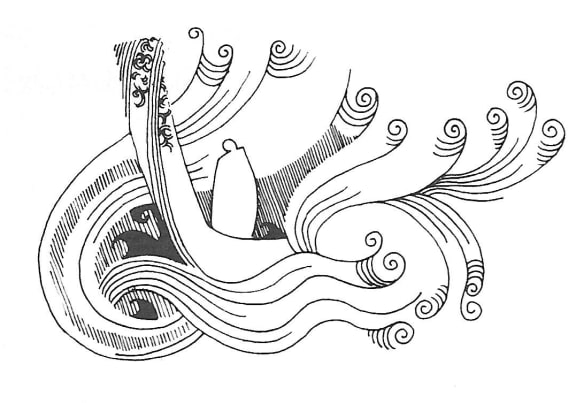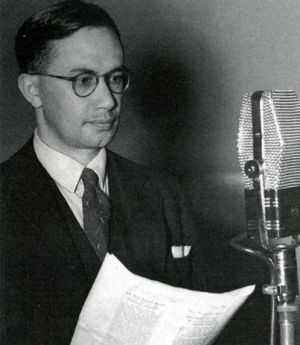Poroporoaki to King Koroki by Pei Te Hurinui Jones in 1966

King Koroki succeeded his dead father, Te Rata, in October 1933 and thus became the fifth Māori King. With Koroki’s death, thirty-three years later, the continuous line of kings was broken and Te Atairangikāhu became the first Māori queen. Koroki’s tangihanga was held at Turangawaewae Marae and his body transported to Taupiri Mountain, the resting place of Māori kings.
Koroki was a member of Ngāti Mahuta and had links with all the other important tribes of Aotearoa. His high-ranking genealogical ties with other canoes provide the main theme of the speech given by Pei Te Hurinui Jones. His spirit is called on to make a journey around the North Island and visit the descendants of his ancestors one last time before diving into the waters of Te Reinga to begin his final journey.
After the kaupapa is finished, a canoe chant that deals metaphorically with the burying of the body of the king is used as the whakamutunga.
The poroporoaki was delivered as a radio broadcast and Pei Te Huruni Jones (1898 –1976) was probably selected to give it because of his close genealogical ties and friendship with the king. He belonged to Ngāti Maniapoto.
Pei Jones was a well-known figure in the Māori community during his lifetime. His many years of experience in the Māori Land Court as officer for Māori land title, consolidations and development, gave him valuable insights into Māori language, culture and traditions. He is probably best known for his work revising Williams’ Dictionary of Maori Language and for his extension of Sir Apirana Ngata’s collection, Nga Moteatea.
Pei Jones was also a man of literature. He carried out a number of translations of English classics into Māori. Notable among these were Shakespeare’s The Merchant of Venice (later used for the Māori-language film adaptation) and Fitzgerald’s the Rubaiyat of Omar Khayyam.
Whaikōrero - King Koroki
Wiremu Parker hosts a panel discussion recorded in 1981 with panelists Tamati Kruger and Ruka Broughton.
The men analyse segments of the whaikorero (formal speech) delivered by Dr Pei te Hurinui Jones (1898 – 1976) at the poroporaki (farewell) to the fifth Māori king, Kingi Koroki.
The discussion features archival material from the Centre for Māori studies and Research at the University of Waikato.
The Panel
Wiremu Parker broadcasting to the nation. Photo via Te Ara.
Wiremu Parker (4 Feb 1914–10 Nov 1986) - Ngāti Porou
A widely known and respected broadcaster in the Māori language and in English In addition to more than 40 years of broadcasting work he was a lecturer in adult education, and a teacher and translator of the Māori language.
Ruka Broughton (21 April 1940–17 April 1986) - Ngā Rauru
A tohunga and authority on Nga Rauru and Taranaki history, esoteric lore, whakapapa, and the interpretations of ancient karakia and waiata. He also trained and served as an Anglican priest, and a university academic.
Tamati Kruger - Tuhoe
A recognised authority in Māori language and customary practices and an Māori advocate and social/political analyst who has spent much of his life working in tribal research and development. He has also lectured in Te Reo at Te Pū Wānanga o Anamata
This series was produced by David Somerset in 1981 for the Continuing Education Unit of Radio New Zealand.
